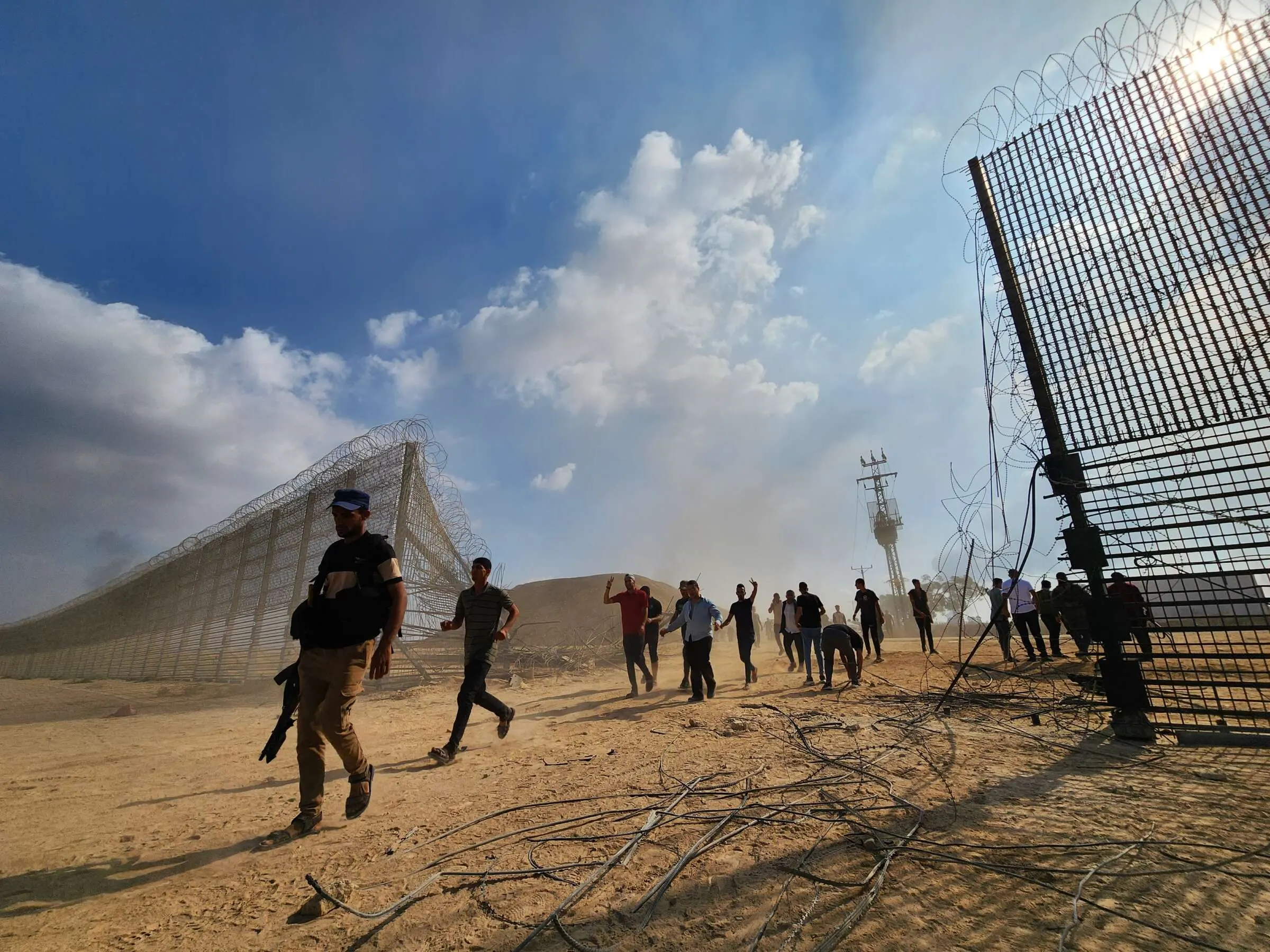I was recently invited by the director of CCA Berlin (Center for Contemporary Arts) to participate in a poetry project conceived between them and DAAD (Deutscher Akademischer Austauschdienst). The project, Displayed Words, showcases text/poetry by various international authors in Berlin’s public space, such as on the Klosterruine and the balcony of Tiergarten’s City Hall. I was asked to take part in the final instantiation of this project where some of my words, alongside another six authors’ would be displayed on the balcony of Staatsbibliothek Potsdamer Platz, facing the Neue Nationalgalerie. It was suggested to me that the words of my poem ‘10 November 2023’ could be used.
10 November 2023 was the thirty-fourth day of Israel’s onslaught on Gaza. Over 11,000 Palestinians had been murdered, over 27,000 had been injured, around 1.6 million had been internally displaced, and the full electricity blackout was in its thirty-first day, tens of thousands of buildings and homes had been turned to rubble, half the hospitals were shut down, two thirds of primary health care services were unable to operate, half the schools had been destroyed, all education had ceased, and death by starvation was already predicted.
The poem was an exorcism of rage and grief through words, and of words. I wanted to attack language itself for its continuous role in manufacturing consent for the ongoing genocide. The production of lies and enforcement of silence have their special roles too; not least in Germany where repression of pro-Palestinian speech and protest seem to find incredible new depths to sink to daily. Not to mention Germany’s material support for the murder of Palestinians: it is one of the largest funders of military supplies to Israel, sending 326.5 million euros ($353.7m) in equipment and weapons in 2023. And yet Germany still finds the mental flexibility to deny the accusation brought by Nicaraguan lawyers before the ICJ that it was aiding genocide.
None of this was acknowledged in the invitation, nor were any words of solidarity suggested or extended. I replied to the invitation saying that as a Palestinian writer, advocate of Palestinian resistances to settler colonial occupation and genocide, and signatory of the Strike Germany campaign I could not take part unless all institutions involved were to meet the movement’s demands, and release public statements about having done so. Although I knew this was an impossible demand, it was important for me to explain that it was impossible and undesirable for me to take part without these institutions publicly realigning their positions. The reply I received stated that my position was understood and supported and expressed a hope for a “changed climate.” However, the invitation to act together towards actually doing something, risking something, or sacrificing something to change anything was not taken up.
Why would I allow my words opposing the genocide of my people to be displayed on the national institutions of one of the nations funding and supporting that genocide, and violently quelling any opposition? The institutions that would pin us like dead animals onto neatly labelled displays within that thing called culture will continue to use us for decoration; to be strung up around their dead monuments unless we commit, as many have, to an anarchic, compassionate, permanent refusal of everything that silences us by giving us a voice.
The only words on the only walls that matter to me right now are the words Palestinians of Gaza are writing on the walls of their destroyed city, saying who is buried underneath that wall, the date of the massacre, and the promise to return and to rebuild.
Decolonial Hacker’s interventions into the digital territories of institutions do not seek to quell or quiet the possibilities of disruptive language in exchange for promises of entering into “culture” and its self-aggrandising realm of visibility. Nor does it accept that refusing and critiquing those institutions that collaborate in imperial deathscapes would render us, as Stuart Hall has said, permanently minor, invisible and marginalised. Rather, what it hopes to do—and what I hope to do in my brief visit as Guest Editor—is bring together a few voices of thinkers who are able to articulate and sing about these dark times, and who remind me that refusal is always the yes inside the no.

